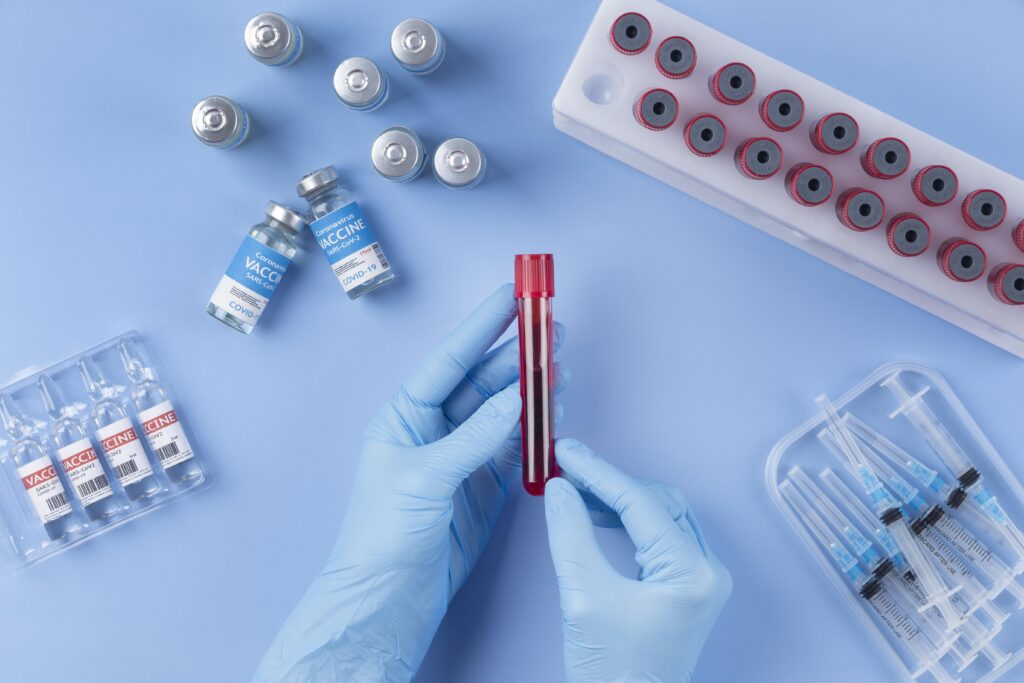1. Introduction
Blood is essential to our health, transporting nutrients, oxygen, and hormones to cells and removing waste products. Hematologists, specialists in blood-related disorders, play a crucial role in maintaining our overall health and well-being. This article delves into the world of hematology, explaining the significant contributions of hematologists to our health, the various conditions they treat, and how their expertise supports our well-being.
2. What is Hematology?
Hematology is the branch of medicine that focuses on the study of blood, blood-forming organs, and blood diseases. Hematologists diagnose, treat, and manage a wide range of conditions, including anemia, leukemia, lymphoma, and clotting disorders. Their work is crucial in understanding how blood functions, how diseases can affect it, and how these conditions can be treated and managed effectively.
3. The Role of a Hematologist
Hematologists perform a variety of roles to ensure and restore blood health:
- Diagnostics: Hematologists use blood tests, bone marrow biopsies, and other diagnostic tools to detect abnormalities in blood cells and blood-forming organs. They analyze these tests to diagnose conditions such as anemia, clotting disorders, and blood cancers.
- Treatment Plans: Based on their diagnoses, hematologists create and implement treatment plans tailored to each patient’s needs. These plans may include medications, blood transfusions, and advanced therapies like stem cell transplants. The goal is to manage the condition effectively and improve the patient’s quality of life.
- Collaboration: Hematologists often work in collaboration with oncologists, surgeons, and other medical specialists. This multidisciplinary approach is especially important in treating complex conditions such as blood cancers, where a combination of treatments may be necessary.
4. Common Procedures and Tests in Hematology
Several key procedures and tests are central to hematology:
- Blood Tests: Common blood tests include the complete blood count (CBC), which measures different components of the blood, such as red and white blood cells, and platelets. Blood smears are used to examine the shape and appearance of blood cells, helping to diagnose conditions like anemia and infections. Coagulation tests assess the blood’s ability to clot properly.
- Bone Marrow Biopsy and Aspiration: These procedures involve taking a small sample of bone marrow tissue to examine it for abnormalities. They are crucial for diagnosing conditions like leukemia and lymphoma, as well as assessing the bone marrow’s function.
- Genetic Testing: Genetic tests can identify inherited blood disorders and help guide treatment decisions. For example, genetic testing can determine if a patient has a predisposition to certain types of anemia or clotting disorders, allowing for personalized treatment plans.
5. How Hematologists Contribute to Health and Well-Being
Hematologists significantly enhance health and well-being through their expertise and care:
- Early Detection: By diagnosing blood disorders early, hematologists enable timely treatment, which can significantly improve outcomes. Early detection is particularly important for conditions like leukemia, where early intervention can lead to better prognosis and survival rates.
- Personalized Treatment: Hematologists develop personalized treatment plans tailored to each patient’s specific needs. This individualized approach ensures that patients receive the most effective treatments for their conditions, improving their overall health and quality of life.
- Support During Chronic Conditions: For patients with chronic blood disorders, hematologists provide ongoing care and support. They monitor the patient’s condition, adjust treatment plans as needed, and offer guidance on managing symptoms and maintaining a healthy lifestyle.
- Cancer Treatment: Hematologists play a crucial role in the treatment of blood cancers, such as leukemia, lymphoma, and multiple myeloma. They coordinate with oncologists to provide chemotherapy, radiation therapy, and bone marrow transplants, which are essential for treating these cancers and improving patient outcomes.
6. Preventive Care and Lifestyle Advice
Maintaining blood health involves preventive measures and lifestyle choices:
- Regular Check-ups: Routine blood tests can catch issues before they become serious. Regular screenings are particularly important for individuals with a family history of blood disorders or those at higher risk.
- Nutritional Advice: A diet rich in iron, vitamins, and minerals supports healthy blood. Hematologists often recommend dietary changes to help manage conditions like anemia. Foods rich in iron (such as leafy greens, beans, and red meat) and vitamins (such as vitamin B12 and folate) are essential for maintaining healthy blood cells.
- Lifestyle Modifications: Avoiding smoking, managing stress, and regular exercise can prevent blood-related issues. Hematologists may also provide guidance on managing chronic conditions, such as advising patients on how to avoid triggers for sickle cell crises or how to manage bleeding risks in clotting disorders.
7. Advances in Hematology
The field of hematology is continually evolving with new research and treatments:
- Recent Breakthroughs: Advances such as CAR T-cell therapy and new anticoagulants have transformed treatment landscapes. CAR T-cell therapy, for example, involves reprogramming the patient’s own immune cells to target and destroy cancer cells, offering new hope for patients with certain types of leukemia and lymphoma.
- Future Directions: Ongoing research into gene therapy and personalized medicine promises to further revolutionize care. Gene therapy aims to correct genetic defects that cause blood disorders, offering potential cures for conditions like sickle cell anemia and hemophilia.
8. When to See a Hematologist
Knowing when to consult a hematologist is crucial for maintaining blood health:
- Symptoms: Unexplained fatigue, frequent infections, unusual bleeding or bruising, and persistent anemia are signs that warrant a visit to a hematologist. These symptoms can indicate underlying blood disorders that require specialized care.
- Referrals: Primary care physicians often refer patients to hematologists when blood-related abnormalities are detected. For example, if routine blood tests reveal low red blood cell counts or abnormal clotting factors, a referral to a hematologist is necessary for further evaluation and treatment.
9. Conclusion
Hematologists are vital to maintaining our health, focusing on the critical area of blood health. Regular check-ups and being aware of the signs that indicate the need for a specialist can significantly enhance your well-being. Prioritizing your blood health is a key step towards overall health and longevity.



